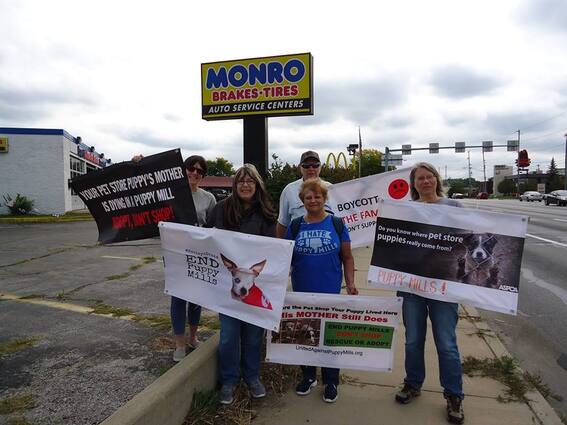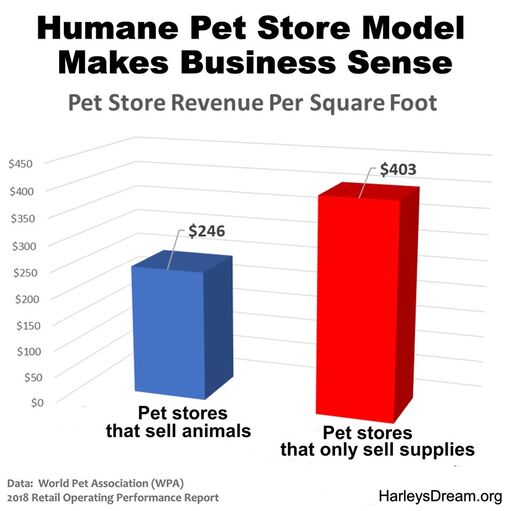|
As a U.S. Army veteran, I have strong opinions about free speech. I not only see free speech as a right of all American citizens, but I would argue that it is our responsibility to speak out on matters of public concern. If issues are important enough for us to be outraged or angry, then they must be important enough for us to speak out and express ourselves to those who govern us. I’ve been an outspoken animal welfare advocate for many years. Your tax dollars at work, I guess. Most of my advocacy relates to keeping shelter animals alive using the programs and services of the No Kill Equation. I also advocate for animals related to the issues I cover on my website: puppy mills, spay and neuter, adoption, aggression in dogs, breed bans, etc. I am the first to admit that I’ve made my fair share of mistakes along the way. In my early days of No Kill advocacy, I was too focused on the method I was promoting and not enough on the personalities of the people with whom I was dealing. Because I work in the legal field in municipal defense, I have always had a good handle on how local and state governments function. What I did not fully appreciate was that how my message is received is often as important as the message itself, regardless of my intent. I think the path I have taken would have changed little even if I had a better appreciation for position of the people with whom I was interacting. Some would have been defensive no matter how diplomatically I behaved. Some would not have been able to hear the message from me no matter now many years of experience I have or how much I know related to the issues about which I speak for animals. One thing I have learned along the way is the importance of always striving to take the high road, no matter how others behave. There will always be people who oppose efforts to improve the welfare of animals for a host of reasons and there is little we can do about it. We cannot convince everyone to share our beliefs through magical thinking or sheer force of our will. Saying the same thing numerous times or saying it more loudly or forcefully is not the answer. I wrote about the behavior of some local opponents to my No Kill shelter advocacy in the book I published last year. People outside of animal welfare circles may think we all get along because we all want the same things. We do not all get along and there are great divisions and struggles between advocates. The people who voiced the loudest opposition to our efforts to reform the local animal shelter were from the animal rescue community. Doesn’t make much sense, I know. But that’s the reality. Even when we take the high road, that behavior is not always reciprocated and we have to learn to just tune out the hate and focus on the message and what we hope to accomplish. In addition to my advocacy efforts related to No Kill animal sheltering, I’ve been involved with writing and advancing local laws in my state related to animals as well as writing, promoting and opposing laws on the state level. My bill about commercial dog breeding in my state has yet to be filed by my primary sponsor; it is standards-based and makes violations criminal, much like the criminal laws about abuse and neglect. My sponsor tells me he is holding my bill it as a common-sense alternative to a bill which he expects to be both overly ambitious and unenforceable. Time will tell if it is ever filed, but it has been reviewed for the state’s legal team and is ready to roll. Just this week I was reminded again of the importance of staying on that high road when it comes to interacting with state elected officials. People who advocate for animals are passionate. We cannot lose sight, however, that how we communicate our opinion – and how we behave it we don’t get what we want – are of critical importance. I encourage everyone I know to speak out about proposed state laws that relate to animals. Sometimes bills about animals move so quickly the pubic knows nothing about them before they made laws. The reasons for this relate to money and influence by some large organizations like the AKC, Petland, insurance companies and Big Agriculture, but that’s the subject for another blog. When we communicate with state elected officials about bills, we have to be logical and respectful and we have to know what we’re talking about. To behave otherwise means that our message is lost completely. After having expressed our opinion about bills, we wait for the process to unfold and see what happens. If a bill we support does not pass, it is up to us to try to determine why. It may be that there is a way to promote something better in the future. It may be that the forces opposing the bill are just too strong to be overcome at the present time. If a bill we oppose does pass, it up to us to determine how we behave moving forward. Once a bill becomes a law, there is nothing we can do to turn back the hands of time. Laws are often amended, but that takes time so that circumstances change from the reasons the law was enacted in the first place. When we yell, scream, threaten or otherwise run around like our hair is on fire related to laws, we lose all credibility and we stifle communication. I sometimes call this behavior Boomerang Aggression. We’re all familiar with the concept of a boomerang – a throwing tool or toy that is designed to spin about an axis perpendicular to the direction of its flight. A returning boomerang is designed to return to the thrower. Boomerang Aggression is when we behave so badly in our communication that we end up silencing our own efforts, having effectively hit ourselves in the head. A number of animal bills have been filed in my state since the legislative session began in early February. Some are good like House Bill 134 which serves to define the single word, “shelter” in the existing criminal law about abuse and neglect of dogs and cats. This may seem like any easy bill. It is not. It has been opposed by some powerful organizations in past years and likely will be again this year. Nonetheless, animal advocates like me have voiced our support for the bill to the committee considering it and we’ll continue to express ourselves through the process. One particular bill, Senate Bill 196, was not just terrible. It was downright dangerous. This bill would have put all control of all things animal under the exclusive control of the State Department of Agriculture (which has never dealt with any issues related to dogs and cats), would have nullified local laws already on the books about pet shops (for which I worked hard last year to promote) to open the door for companies like Petland to begin selling more animals in the state, would have put investigation of complaints of abuse and neglect in the hands of the Agriculture Department, would have criminal charged someone who reports animal abuse or neglect if the allegations later prove to be unfounded, and which would make it practically impossible for cities to enact new laws related to animals. Through some incredibly hard work by a large number of people, to include the Alabama representative for the Humane Society of the United States -Mindy Gilbert- we were able to get SB 196 stalled. After the commissioner of the Department of Agriculture said his department was not consulted on the bill and they were completely unprepared to deal with issues related to dogs and cats, and as a result of many people speaking out against the bill, the primary sponsor agreed to not advance the bill further. This was a huge deal for most of us, but we’re not claiming victory yet. The legislative session doesn’t end until May and anything can happen in the intervening months.
In spite of this small victory, some people in the Birmingham area have failed to do one simple thing: stop talking about Senate Bill 196. The primary sponsor has agreed to not advance the bill. When people continue to call, email and write to the senate sponsors (there are 6) to threaten them, engage in name calling and engage in otherwise aggressive behavior, that does two things. It paints all animal advocates as unreasonable zealots who are incapable of respectful communication and it makes it harder (if not impossible) to have constructive communication with those elected officials in the future. I have seen this same behavior from the same people before. It has not served them well in the past and it is not serving any of us well now. Those people fail to understand that the very senators they are attacking are the very people from whom they will need cooperation in the future on similar animal law or other animal laws. When you are so aggressive in your communication that the person with whom you are communicating is no longer listening or decides to apply your behavior to others, you are doing terrible harm to the animal welfare movement as a whole. So. Folks in Birmingham. Please. Stop talking. Let Senate Bill 196 die a quiet death in this legislative session and stop vilifying the very elected officials from whom you will no doubt need cooperation in the future. We can all communicate our position on proposed laws in ways which are logical, effective and respectful. I can’t control your behavior, but you can for the sake of us all, human and animal. If you can’t stop talking, that tells me your focus is not on animal welfare itself but on you as a person. So don’t be surprised if the boomerang comes back and hits you in the head. You will have deserved it. And we may all suffer the consequences of your inability to speak your truth without screaming it.
0 Comments
In late November of 2018, I receive terrible news. A contact told me that a national pet supply chain (which I presumed to be Petland) planned to acquire an existing pet store location in the city where I work and would be selling dogs. Petland is a huge national pet supply chain which sells not only supplies, but which sells animals. According to the Petland website, “Petland, Inc. is a privately held Ohio corporation founded in 1967. Initially, Petland owned and operated retail pet stores in Ohio, West Virginia and Kentucky. In the early 1970's, Petland began franchising pet stores and entered the business of wholesale distribution for pet-related merchandise.” The Petland Mission on the website states, “our pet counselors are dedicated to matching the right pet with the right customer and meeting the needs of both. To our customers who already have pets, we are dedicated to enhancing their knowledge and enjoyment of the human-animal bond." Coulda fooled me. Petland may look good on the surface, but the national reputation of this company is anything but good. Petland has been the source of immense controversy in our society in which people have become increasingly aware of the plight of shelter animals and aware of the plight of dogs which come from commercial breeding facilities. If you have not kept up recently, Petland has been the subject of two separate alerts from the Centers for Disease Control regarding the spread of disease from dogs to people just in the last two years. The Final Outbreak Advisory for the first study was published in 2018. This particular outbreak of multi-drug resistant Campylobactor infections of people in 17 states is the subject of a class-action lawsuit filed in Federal Court in Atlanta. An undercover investigation conducted by the Humane Society of the United States in 2019 revealed sick and dead puppies at Petland stores (the video in the news story at this link may be upsetting to some people). An Investigation Notice was published by the CDC on December 27, 2019 regarding a new outbreak affecting 30 people in 13 states. These recent reports only scratch the surface of the problems with animals in Petland stores which have been known to animal welfare advocates for many years. There is currently only one Petland store in the state where I live. It is located in Montgomery, Alabama. I suppose we should consider ourselves fortunate that Petland has yet to gain a strong foothold here., not that it is not trying to do just that. According to the Petland website. In the late 1980's, Petland expanded its presence in Canada and entered international markets. Petland currently has almost 100 stores in the United States and now has an international presence in Brazil, Japan, South Africa, Saudi Arabia, China, Canada, El Salvador and Mexico. Make no mistake - this is big business in the animal supply industry. I have contacts who protest at Petland and similar stores every Saturday come rain, shine, snow or sleet. They do this to create a visible presence near these stores to warm consumers about the source of the dogs in Petland and similar stores, about the conditions in which the dogs’ parents live and about the potential that the dogs are sick. The American love affair with dogs has existed for as long as our country has existed. We consider ourselves an animal-friendly society, but that belief is often to the detriment of the dogs we say we love. All puppies are cute. They practically sell themselves. It can be hard to resist a little ball of fur we see in a pet store who is in obvious need of care. But resist we must if we are ever to slow the production of these dogs by the millions in our society while perpetuating the abusive conditions from which they come. People may believe they come from local breeders or a nice house down the street. They do not. No reputable breeder would ever sell dogs in a pet store. People may be told they come from a USDA licensed breeder, but that is no indication of standards of any type. They come from “puppy mills.” Whether you interpret that phrase as a reflection of volume production, as I do, or you associate that phrase with terrible living conditions in which dogs live perpetually in cages without adequate veterinary care, the end result is the same: buying dogs in stores supports an industry most of us abhor and which we hope to see end someday. But back to my local crisis. There was no time to delay. I reached out to the director of the local animal shelter – who is also a city department head – and asked if she would work with me to advance a preemption ordinance with record speed to prevent any local pet stores from sources animals from breeders. She was on board. I drafted an ordinance that day with a little help from my friends - namely Mindy Gilbert who is the Alabama representative for the Humane Society of the United States. I got the draft to the shelter director that morning and she got it to the city attorney’s office. I contacted members of the city council to let them know what was coming their way and to explain the urgency of the situation. The city had a very limited window of time within which to enact a law to prevent animals being shipped from other states and essentially imported to the city for sale in the pet store which was rumored to open. The city council took action as quickly as was possible and an ordinance was enacted on December 20, 2018. It was the first such ordinance in the state. What is says is that pet shops inside the city limits can only source animals from the tax-funded animal shelter (Huntsville Animal Services), from an animal care facility, or from an animal rescue organization (as defined in the ordinance as a 501(c)(3) nonprofit which does not obtain animals from a breeder or broker for profit or compensation. The ordinance also requires local pet stores to display a label on each animal cage stating the name and address of the organization of each animal kept in the cage to keep records about the animals which reflect the source of those animals. I was proud at how quickly we worked together to prevent any pet store from sourcing animals from breeders, whether that store would be Petland or some other national chain. The city had worked hard for years to change the way the local animal shelter operates to keep more shelter animals alive and enacting this law was consistent with the values in, and laws of, the city. Within a couple of days of Huntsville enacting the ordinance, I heard from the same contact that Petland now had its sights on the City of Athens. I contacted the Athens City Attorney and a member of the city council to warn them of the potential that they were next in line for a national pet supply store to set up shop. The City of Athens also moved with record speed to enact an ordinance which is similar to the Huntsville law. It was enacted in late January of 2019. This began a wave of ordinances enacted in other cities: Guntersville, Anniston, Albertville, Tuscaloosa, Boaz and Jasper, also with the Mindy's help.* While all this was going on, I received more terrible news. The ordinances in Huntsville and Athens had apparently drawn the attention of Petland. On April 3, 2019, I learned that Alabama Senator David Sessions had filed Senate Bill 183 at 5:00 p.m. the previous day which would put regulation of pet stores under the control of the State of Alabama, would take away the authority of municipalities to enact laws regarding pet stores and pet shops, and which would nullify the laws enacted in Huntsville in Athens. Although many states have Departments of Agriculture which exercise oversight related to dogs and cats, that is not the case in Alabama. The Department of Agriculture here has never played any role in oversight of these animals and now was not the time to start to the benefit of large businesses which would import dogs into the state when so many dogs already die here in our tax-funded shelters. I emailed the the Huntsville mayor and council members that morning to alert them of the bill and encourage them to reach out to their legislative delegation immediately to state opposition to this bill. I also reached out to my Athens contacts. The same day I sent my messages, the bill passed through the Senate Agriculture, Conservation and Forestry Committee with a unanimous vote. I heard the bill referred to as “greased,” meaning it was moving quickly as a result of lobbying efforts which are presumed to have been undertaken by Petland. What happened after that is beyond my knowledge. All I know is that the we made it through the rest of the legislative session without the original bill (or a later amendment) becoming a law. We had dodged a bullet of sorts. We know the bill will be back in 2020. I expect a call or email any day to let me know the bill has been filed; I’ll share that information with my contacts in the cities which have laws on the books so they can have a voice to try to stop the bill before it becomes law without the knowledge of the public. We have seen this before. Once a bill like this is filed in a state one time, it is filed over and over again, looking for some opportunity to pass the law before people realize what has happened. To me, this issue is simple. Cities have a vested interest in the types of businesses which operate inside city limits. Just because a business wants to open does not mean that it can operate in any way it chooses. In the case of animals, each city has a right to pass laws which protect consumers. That is what these local laws in Alabama are designed to do. And Alabama is not alone. One look at the information maintained by the Best Friends Animal Society on this subject shows that many states and many locations across the country are taking action to protect themselves from an influx of animals into their communities which may not only make the public sick, but which may lead to increased spending by those communities when the sick animals are abandoned or surrendered to local animal shelters. I received an email alert on February 7th which said that a federal court in Maryland had upheld the state’s retail pet store law, the "No More Puppy-Mill Pups Act.” The Act, which went into effect January 1, 2020 restricts the offer for sale of cats and dogs by retail pet stores in Maryland. The plaintiffs in the lawsuit were dog breeders, broker and pet stores. Many places across the county, like Huntsville, have spent years to create animal-friendly cultures in their communities which promote adoption and rescue of animals from shelters and rescue groups while at the same time doing nothing to stand in the way of a purchase of an animal from a breeder. As much as I promote adoption of animals, breeders have a right to breed animals and people have a right to get animals from breeders, most of whom are responsible and would never, ever sell an animal in a pet store. I have heard opponents to these pet store/pet shop laws say that they are an attempt to end puppy mills. I don't have an issue with that, but I don't necessarily agree with the position. These laws alone may have the end result of affecting the commercial dog breeding industry, but they will not end the industry directly. Dogs from large commercial breeding operations get to the public in a number of ways and not just through pet stores. A simple Google search for dogs or dogs by breed results in a seemingly endless list of breeders who sell dogs online using websites like Puppy Spot or Puppy Find. As consumers become more aware of the conditions in which many of these dogs are bred, they do not want to support breeders who keep dogs in cages with no opportunity for exercise or who provide the dogs no veterinary care. Not every large dog breeding operation manages dogs that way and many take excellent care of the dogs they breed. When it comes to dogs sold in pet stores and particularly at Petland stores, there are problems with those dogs. People need not only to be made aware of those problems, but need to be protected from dogs who can make them sick. I have also heard that some claim we have a dog shortage and believe these laws will make that shortage worse. No, we do not have a dog shortage. Nathan Winograd wrote recently on this topic in his blog entitled, “There is No Existing or Coming Dog Shortage.” Nathan wrote, “dogs and puppies are in no danger of disappearing. Dogs and puppies in high intake jurisdictions who are being killed could and should be transferred to higher demand jurisdictions, not just within the continental United States, but also from U.S. territories like Puerto Rico and the U.S. Virgin Islands. Once we have saved all of those dogs, we can also turn to saving dogs from other countries on or near our borders who are still dying or suffering due to neglect and a lack of necessary public institutions (with improved inspections and vaccination requirements as needed to address any perceived health issues). These solutions would result in more life-saving for the animals in need of homes today, without expanding the number or scope of exploitative commercial breeders. . .We must continue to pass bans on the retail sale of commercially-bred animals in pet stores (not just for dogs, but also cats, rabbits, hamsters, fish, and other animals), as has been done in California, Maryland, and about 400 cities nationwide. . .Our society is on a positive trend against the exploitation of dogs both in law and in practice.” Some people believe that by only allowing pet stores to source animals from shelters and rescue groups, we are somehow limiting the ability of those stores to make money. Not so. As Harley’s Dream shared recently, retail pet sales ordinances are not about putting pet stores out of business or preventing businesses from starting up. They are about promoting a humane and successful business model. The Facebook page for the Colorado Harley’s Dream group posted the following facts just last week:
I support laws which promote humane business models by pet stores and will continue to do that not only in my state, but across the country. If you want a dog from a breeder, fine. That is your choice. I would prefer that people adopt but you will never hear me chant, "don't breed or buy while shelter dogs die." I just don't think it is realistic at this point in our society to expect everyone to get their pets from shelters and rescue groups. But that does not mean that retail businesses should facilitate that transaction in any way. I'm not sure what 2020 holds for Alabama regarding pet shops and pet stores. My personal hope is that we can stop any new bill presented this year which is similar to SB 83 and that more cities will take action to say through an ordinance, "not in our city." * Note - it is no secret that I am not a fan of the HSUS. Having said that, I have a long and very good working relationship with Mindy Gilbert. We have more in common than we have issues on which we differ in philosophy. Mindy helped me advance an ordinance in the city where I live in 2017 to prohibit chaining of dogs and to ensure adequate care for dogs who live outside. We communicate regularly on host of legislative issues which includes state laws in Alabama related to animals and animal welfare. (images courtesy of Susan K. Robinson, Nicole Mayes and Harley's Dream)
|
AuthorI am an animal welfare advocate. My goal is to help people understand some basic issues related to companion animals in America. Awareness leads to education leads to action leads to change. Archives
July 2024
Categories
All
image courtesy of Terrah Johnson
|









 RSS Feed
RSS Feed